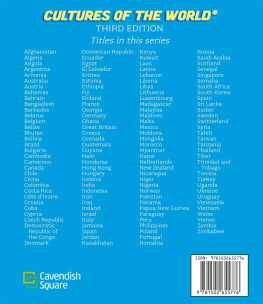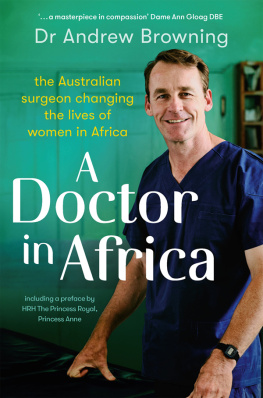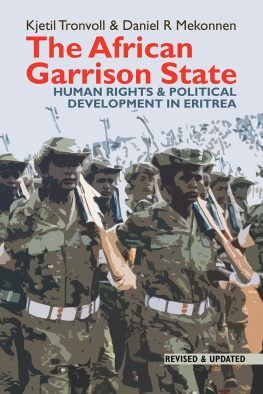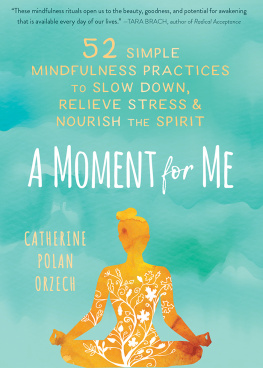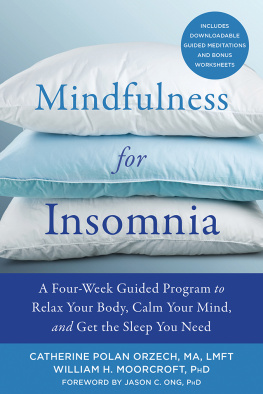This book is dedicated to Saleh Meki, a friend and the visionary Minister of Health of Eritrea who made this project possible and to the women of Eritrea who trusted us to help them.
A Doctors Journey
This is a story about friendship, a friendship that grew slowly and over years, between very different people Stanford physicians from the United States and the doctors and nurses in the small African country of Eritrea. It all began on a winters night in 2002.
After the plane had hopscotched from San Francisco to Frankfurt to Jeddah, Saudi Arabia, the pilots announcement--Were descending for our landing in Asmara--was an electric jolt waking me from the intermittent dozing of the twenty-four-hour trip. Deprived of sleep, hair uncombed, I tried unsuccessfully to separate excitement from anxiety.
The airplane door swung inward. Freezing night air washed over me. In my Out of Africa-influenced imagination, it should have been hot, but on this January night, I shivered in my cotton jacket as we descended the roll-up staircase onto a cracked concrete runway. ASMARA AIRPORT read the sign on the wall of a two-story building a couple of hundred yards away, visible in the yellow glow from the airport windows.
Id been dreaming of this moment for a long time. This trip was the goal I had worked toward over the last two years, ever since the idea of bringing American surgeons to treat women injured in childbirth became the focus of my sabbatical studies in international public health. I was then Chair of the Ob-Gyn department at Stanford University, and I had became fascinated by the problem of obstetric fistula a terrible situation caused by prolonged labor which left a woman with a stillborn baby and constantly leaking urine from a hole torn in her bladder.
Five American gynecologists, including me, were here because of my efforts. After months of work and planning, I had finally persuaded two foundations to support this two-week trip to Eritrea. Recruiting the surgeons hadnt been difficult. Everyone wanted to come and operate in Africa. Much harder had been gathering the necessary supplies. We had to beg our sales reps for surgical supplies, antibiotics and sutures. Then came the hours organizing and packing everything. Arranging care for my kids and coverage for my patients was next. All that effort was focused on these two weeks.
More than half of Eritreas population is nomadic pastoralists who roam the rocky highlands as their goats, cattle, and camels forage for grass and search for water. Traditionally, when these women give birth, they labor in their tents or huts without the help of a trained midwife or physician. Many women marry in their early teens. They are poorly nourished, with immature, small pelvic bones. When they give birth, the outcome is often devastating: The mothers suffer severe injuries to their reproductive organs, and the babies die. I knew all this, had learned it in school at Berkeley, but now I would see and touch these women. We believed in our goals but I still worried: Could we really return these women to a normal, productive life with their families and bring change to the countrys medical system? Or was this just medical tourism, where you come to watch but dont actually make things better?
The heavy metal door to the terminal clanged open and we followed an animated group of Eritrean men and women into a bare room painted a dull brown. The room was lit by hanging bulbs and smelled of stale cigarette smoke. Two unsmiling officials sat behind glass panels at the far end, the sleeves of their uniform shirts rolled up to the elbow. They were slowly and systematically examining documents handed to them by the incoming passengers. The Eritreans chatted excitedly as they greeted one another and the border control guards behind the glass. Tired, we held back until one of the guards beckoned. One by one, we handed over our passports and visas to be stamped and were ushered into the Customs area. We waited as the boxes of donated medical sutures, antibiotics, and surgical retractors were brought from the plane and piled up around us.
I began to sweat. What if nobody comes to meet us?
We were here because I wanted to work in Africa. I was drawn to this strange and unknown world. I felt acutely responsible for the three other women docs and for the single man in the group. I silently prayed we would be able to accomplish our goal of successful surgeries and, equally important, that wed be safe in this very foreign country. But I didn't know where we would be staying in Asmara. I didnt know how we would move around the city from hotel to hospital. I had only an email invitation from a Ministry of Health official. I hadnt actually spoken to anyone. Id been so wrapped up in the details of the trip raising the money, making sure we all had the necessary immunizations, arranging night call coverage for the weeks we were gone - I had blithely ignored the small details of hotels and transportation. I had simply assumed that someone from the Ministry of Health would meet us.
Please, God, let someone be here to tell us what to do and take care of us .
I had boarded the airplane in San Francisco with the same blind faith and optimism that led the settlers out across the American prairies in the 1800s, sure that we could do the necessary work and with unquestioning belief that the Eritrean government or God - would provide. Now I realized, as I looked around at my four colleagues and at our piles of supplies, that our trip was a triumph of idealism and hope over planning and reality.
A HANKERING FOR ADVENTURE
I was raised in the hills and hollows of West Virginia. The world beyond the coalmines and mountains was magnetic, drawing me toward the new and the strange. A girls high school and a womens college fostered in me a comfort with women and an abiding interest in womens issues. During my eight long years of medical training, I took care of women from many different countries and became fascinated by the ways in which women functioned in other cultures, how they participated in their societies (or were blocked from doing so), how they were understood. As a medical student at Yale, I found my first, if somewhat timid, overseas adventure by signing up to work for three months at the John Radcliffe Hospital in Oxford, England.
England was charming. I got a wonderful introduction to the local pubs with their huge array of beer and sherry, as well as a crash course in how womens health care works in another part of the world. British medical students and residents (called housemen) had endless cups of tea with the nurses (called sisters) while the midwives did the labor coaching and deliveries. So I worked with the midwives. As an inexperienced third-year medical student, I would stand, watching apprehensively, behind the midwife. When she said, Get in there or shell pop this babe out onto the floor and elbowed me into position between the soon-to-be-mothers knees, I would literally catch the slippery newborn. Medicine in England taught me to keep my eyes and ears open and, more important, that doctors dont know everything. You learn from everyone.


